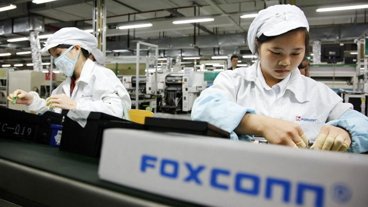2011 iPad shipment forecast cut to 40M as Apple faces 'the mother of all backlogs'
Last October, iSuppli had increased its forecast for 2011 iPad shipments to 43.7 million units. That change came after Apple announced sales of 4.19 million iPads in its September quarter, a number that was seen as disappointing to some on Wall Street.
But while some analysts were prompted to rethink their sales projections going forward, iSuppli, at the time, increased its forecast, citing improved component availability would allow Apple to meet demand in 2011.
The launch of the iPad 2 resulted in crushing demand, and again Wall Street became optimistic about sales.
But during his company's quarterly earnings conference call on Wednesday, Apple Chief Operating Officer Tim Cook referred to struggles to keep up with demand for the iPad 2 as "the mother of all backlogs." Wall Street watchers had expected Apple to report sales of about 6.2 million iPads, but supply constraints led to sales of 4.69 million units.
As noted by DigiTimes, because iPad 2 supply "fell far short of demand" in the previous quarter, iSuppli has revised its 2011 sales forecast to 39.7 million units, down from the previous prediction of 43.7 million units. The new expectations are a result of Apple's inability to meet demand, rather than consumer interest in the iPad 2.
Specifically, iSuppli cited supply chain sources who indicated that Apple had quality concerns with LCD panels, production shortages of the new speaker found in the iPad 2, and lamination issues with one of its touch panel suppliers. And while Apple is said to be on track to "significantly increase its production volume" in the current quarter, it is said to be "still falling substantially short of its target production goal for April."
For 2012, iSuppli has actually increased its forecast for iPad shipments. It sees Apple shipping 62.6 million units next year, up from its previous prediction of 61.6 million.
The report also reiterated Apple's insistence that the earthquake and tsunami disaster in Japan has not had a major impact on supplies. And it also reaffirmed that Apple has been willing to agree to higher prices for components in order to boost iPad 2 production.
Analyst Ming-Chi Kuo said this week that Apple's iPad 2 shipments are expected to double in the company's third fiscal quarter of 2011. He said Apple expects to increase iPad 2 shipments by over 100 percent sequentially in the current three-month frame.
Cook said on Wednesday that he is "extremely pleased" with progress ramping assembly of the iPad 2. He also revealed that Apple will launch the device in 13 more countries next week. He also said he is confident that his company will produce "a very large number of iPads" in the quarter.
"Demand has been staggering, and I'm not going to predict when supply and demand will come into balance," he said. "I can only be confident on the supply side."
 Sam Oliver
Sam Oliver














 Amber Neely
Amber Neely
 Thomas Sibilly
Thomas Sibilly
 AppleInsider Staff
AppleInsider Staff
 William Gallagher
William Gallagher
 Malcolm Owen
Malcolm Owen
 Christine McKee
Christine McKee










22 Comments
All these forecasts are ridiculous. As long as demand outstrips supply, it is impossible to accurately gage that demand. Furthermore, there are nothing but guesses as to what Apple's production capacity will grow to during the year. Forecasting sales is always sketchy, but in this environment it is nothing more than plain guesswork...
How do these analysts arrive at tablet sales projections? Did Apple tell them exactly how many they expected to manufacture? Since there was no iPad sales at the same time last year, what are they basing these projections on? Just pulling the number of 6.2 million units out of a hat? Since the analysts wouldn't know how fast Foxconn can gear up production, why would they necessarily lower the entire year's forecast by 4 million tablets? At any point, Apple could very well get new suppliers or ramp up production by spending more money for greater capacity. I've read there are projections that Apple could move 45 to 60 million tablets this year, so there seems to be large leeway between 45 million and 60 million that could easily absorb 4 million units.
Apple supposedly missing by a couple of million units this early in the year would amount to next to nothing taking the remaining part of the year into consideration. Apple is being held to some exacting numbers by analysts and they're only guessing at production rates. I really don't know why falling short by an estimated 2 million units is anything to be disappointed with.
Exactly! I understand that forecasting is inevitable, but when the particular market sector is as new and so full of unknowns as Apple's iPad market, they should at least stick to making a range prediction instead of picking an exact number...
The implied logic is a bit twisted. We know there is a supply constraint NOW. One might expect the constraint to last, perhaps, 2 months. No one has suggested that the constraint will last 12 months. But the way that the analyst frames the question makes it sound that way.
What we don't know is what a consumer who would have bought an iPad now, but doesn't because of supply constraints, will do. Will he or she:
1. order and wait.
2. hold off and buy an iPad later in the year.
3. hold off and buy another tablet or no tablet.
Only option 3 will affect iPad sales volume for the current year.
I would like to sell 40 million of anything.